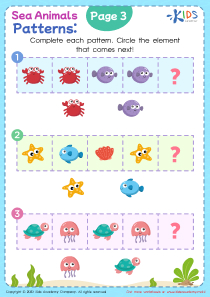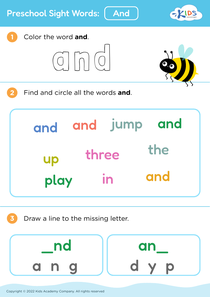Tracing Shapes Worksheets Activities With Answers for Preschool
14 filtered results
-
From - To
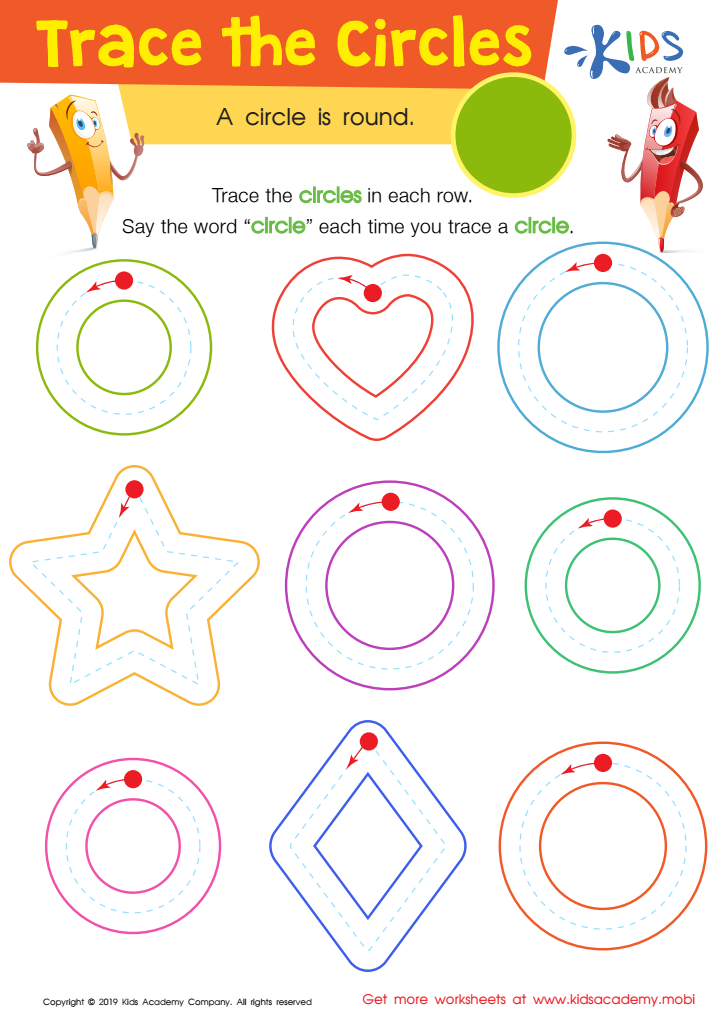

Trace The Circles Worksheet
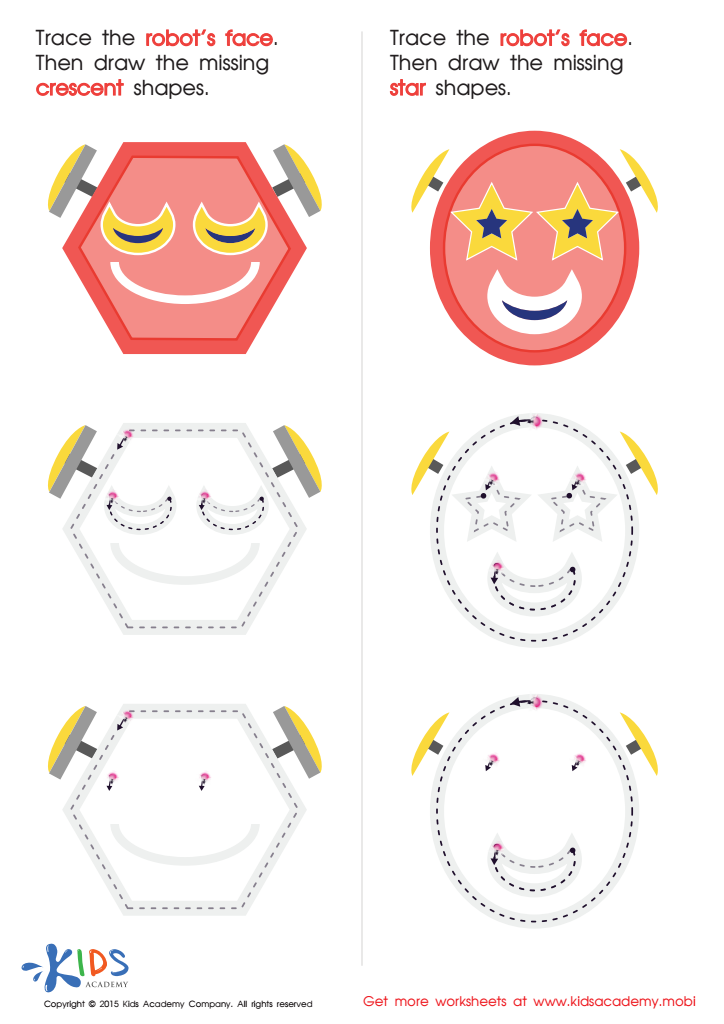

Composing a Robot's Face of Crescents And Stars Worksheet
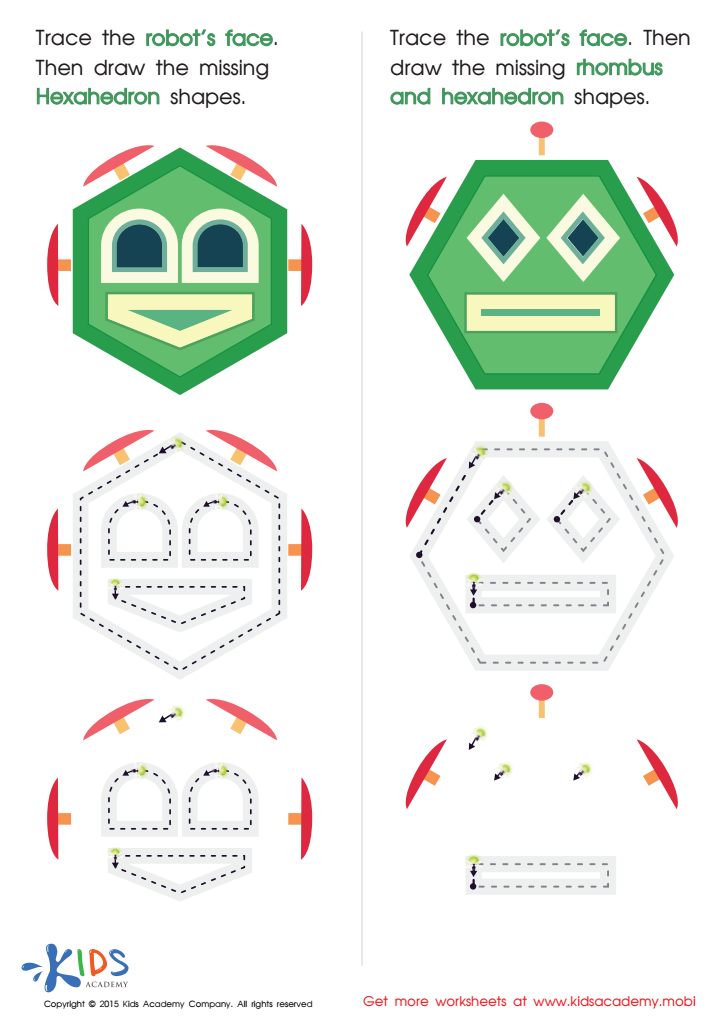

Practice Drawing Hexahedrons And a Rhombus Worksheet


Drawing a Triangle Worksheet
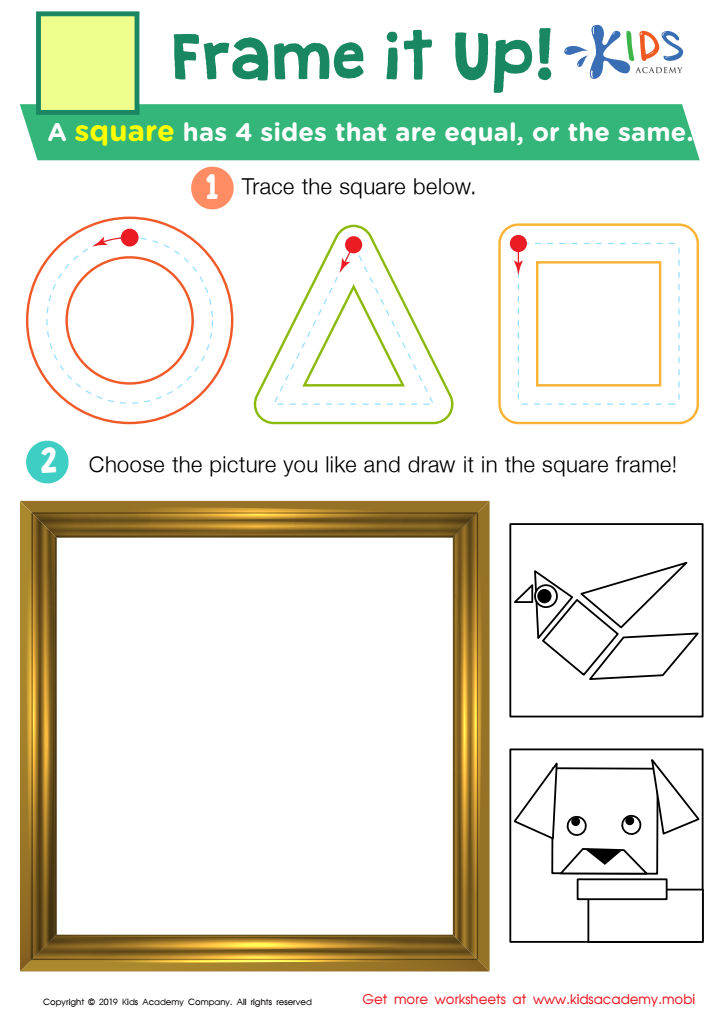

Frame it Up Worksheet
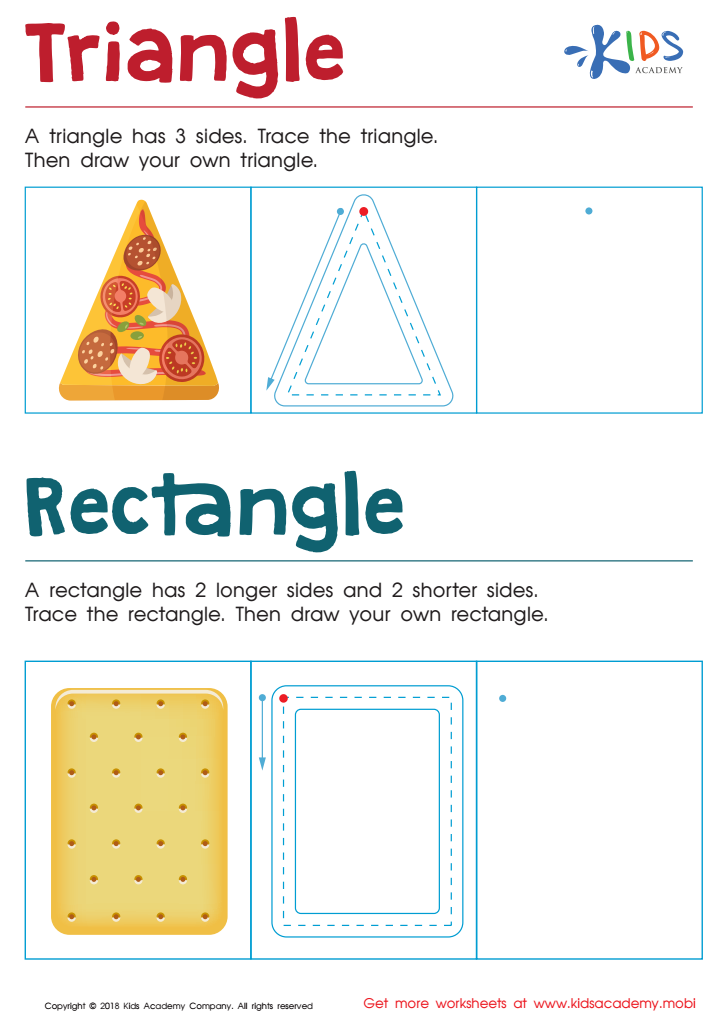

Triangle Rectangle Worksheet
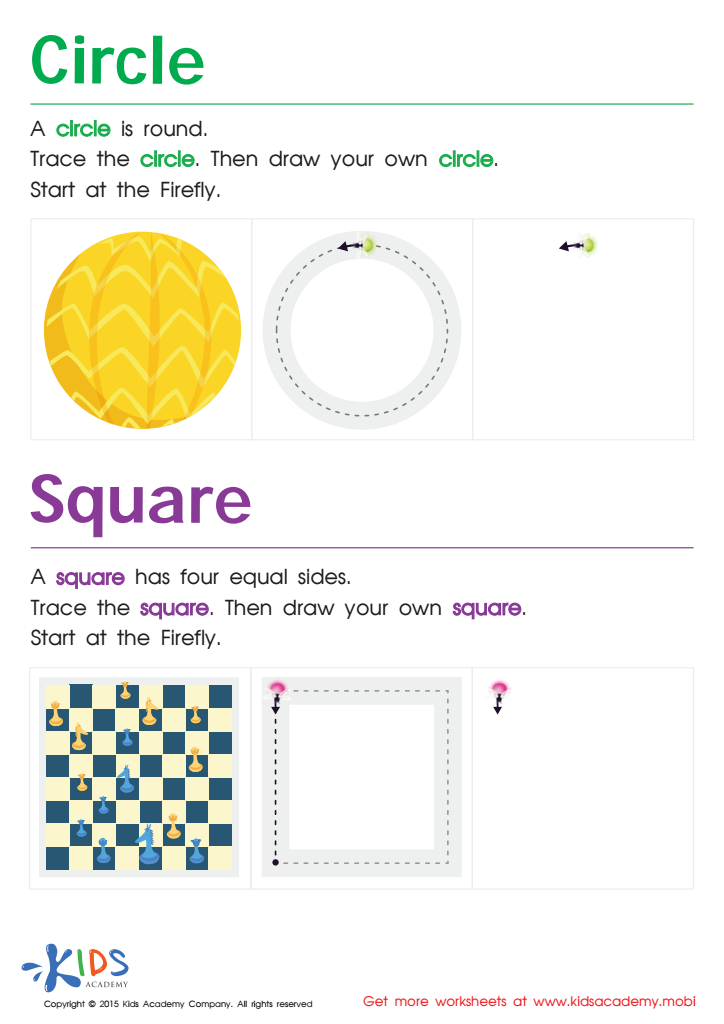

Trace And Draw a Circle And a Square Worksheet
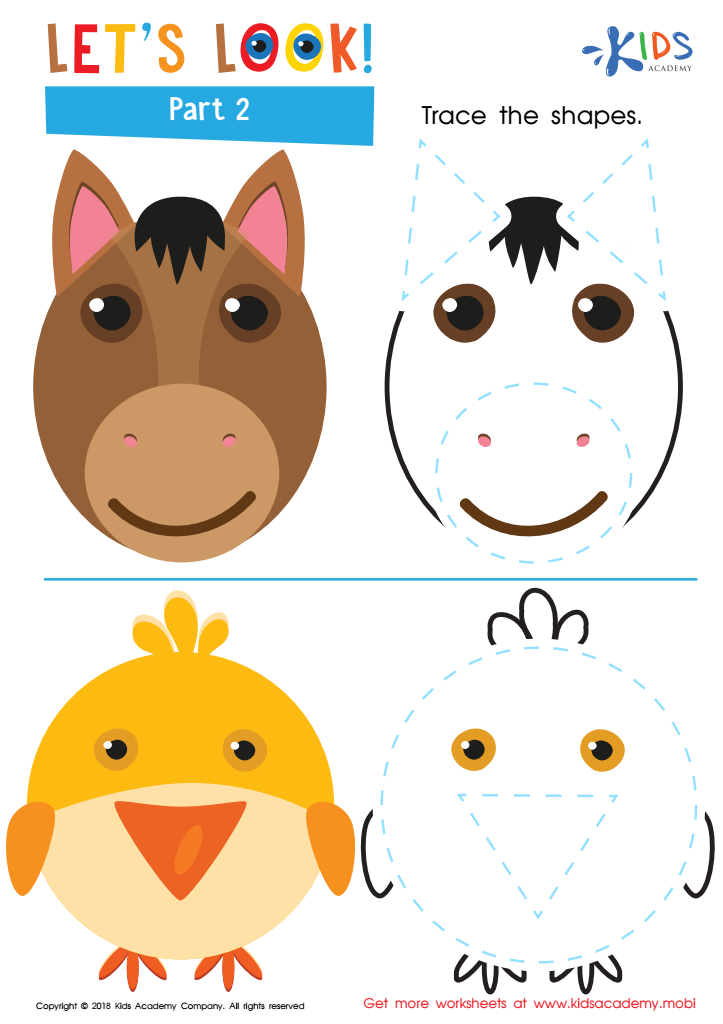

Let's Look! Part 2 Worksheet
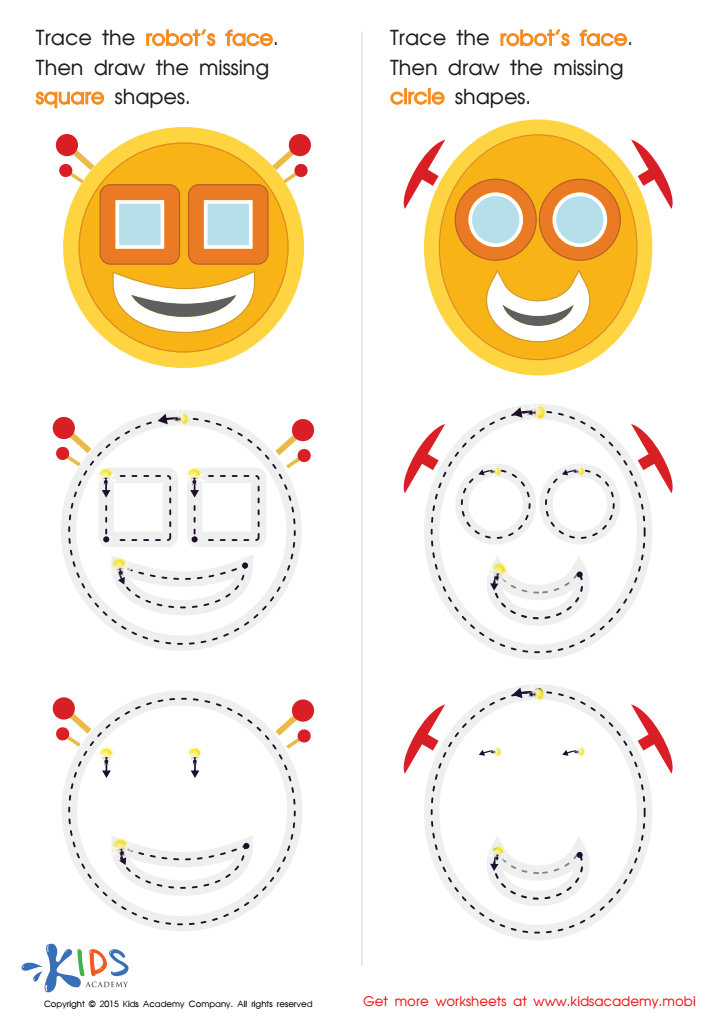

Practicing to Draw Circles And Squares Printable
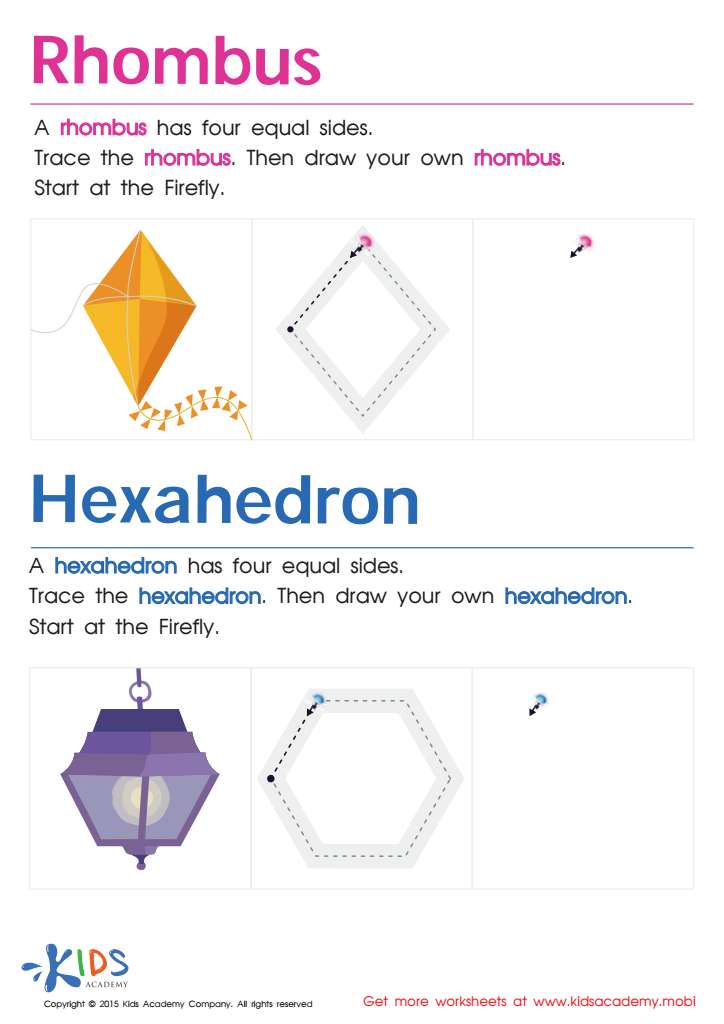

Draw a Rhombus And a Hexahedron Printable
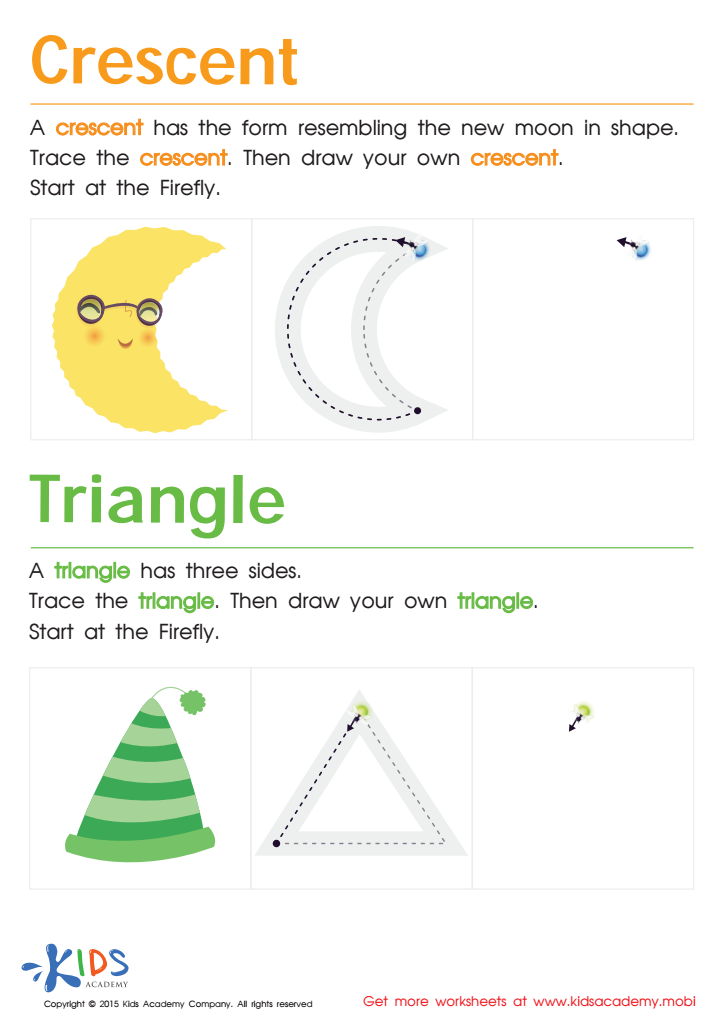

Learning to Draw Crescents And Triangles Worksheet
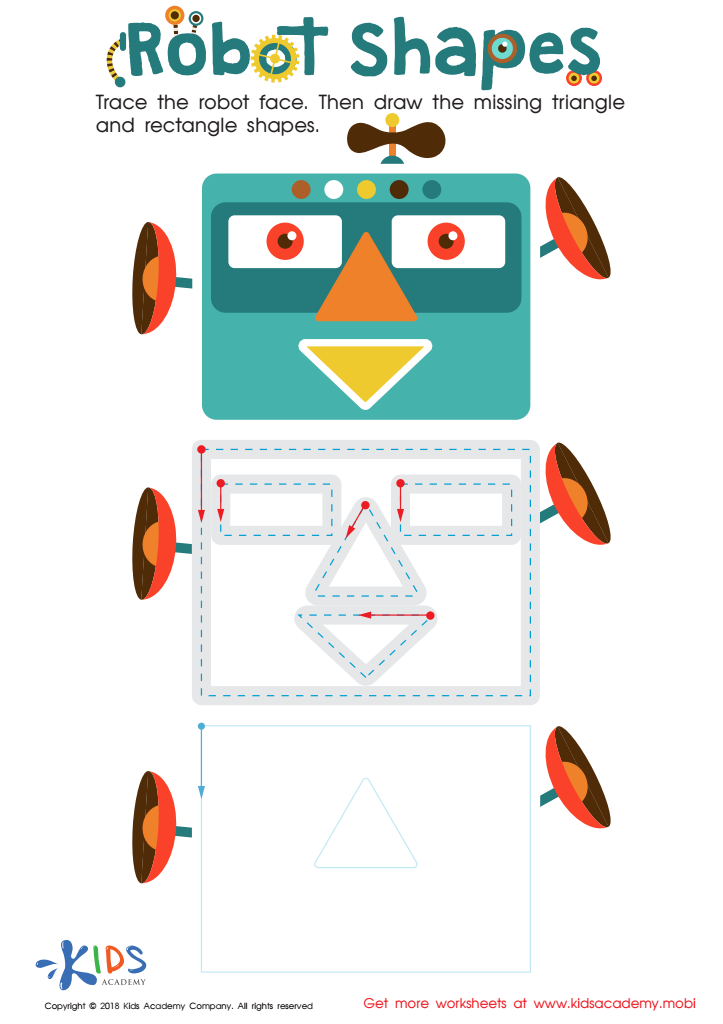

Robot Shapes Worksheet
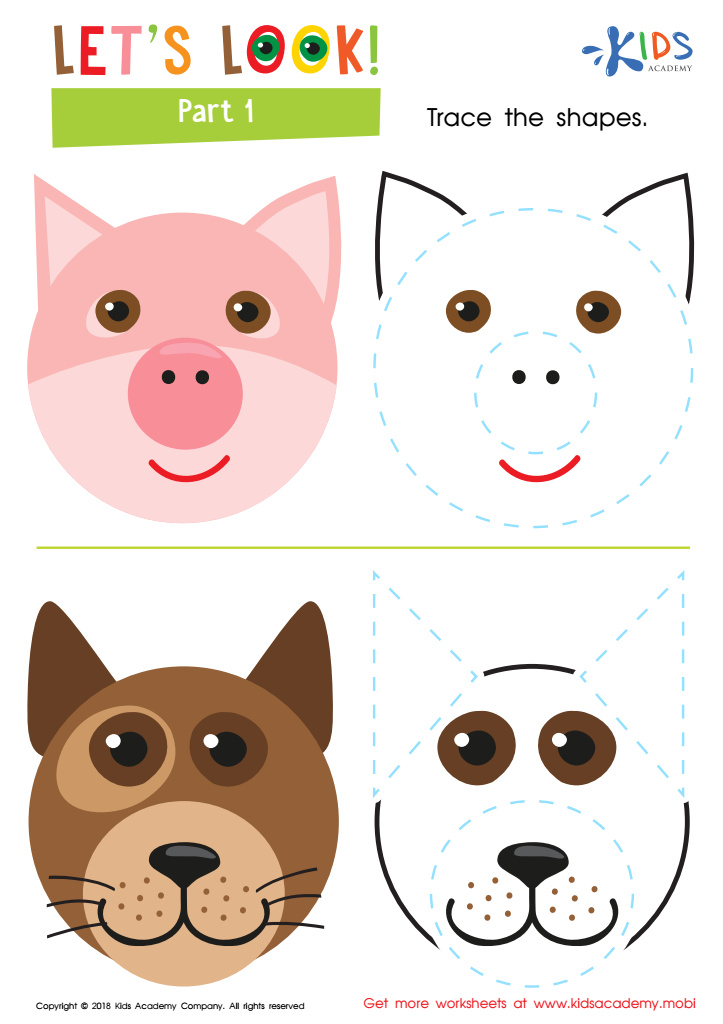

Let's Look! Part 1 Worksheet
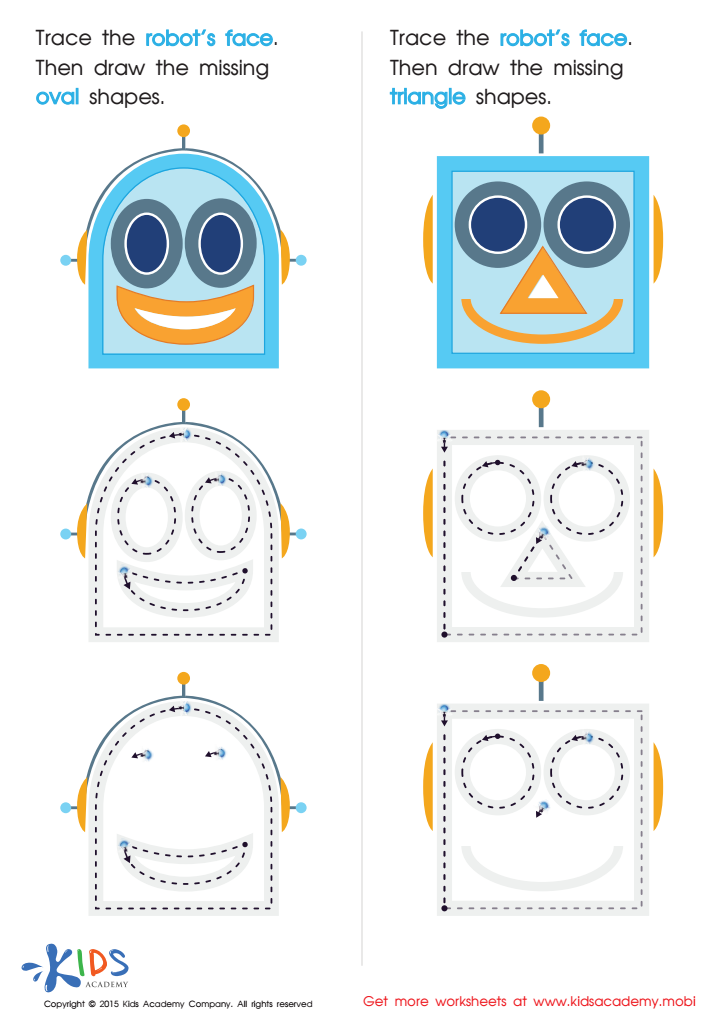

Drawing Ovals And Triangles with Fun Printable
Tracing Shapes Worksheets Activities With Answers for Preschool are not just an engaging way to keep young learners occupied; they are a pivotal tool in the developmental journey of preschoolers. These worksheets, specifically designed for early learners, serve a multitude of purposes that are foundational in the cognitive and motor skills development of children.
Firstly, Tracing Shapes Worksheets Activities With Answers are instrumental in enhancing fine motor skills. As preschoolers trace over different shapes, they refine their pencil grip and control, which is crucial for later writing skills. This repetitive motion of tracing not only strengthens hand muscles but also develops hand-eye coordination, setting a solid foundation for writing letters and numbers in the future.
Moreover, these activities introduce children to basic geometric shapes, laying the groundwork for early math skills. Through tracing, children begin to recognize and differentiate between shapes such as circles, squares, and triangles. This recognition is vital, as it aids in understanding more complex mathematical concepts later on. The inclusion of answers encourages self-assessment and understanding, fostering a sense of accomplishment and independence in young learners.
Additionally, Tracing Shapes Worksheets Activities With Answers stimulate cognitive development. They require children to follow directions, focus on the task at hand, and complete the activity, which enhances their concentration and attention span. This is particularly beneficial in preparing preschoolers for a structured educational environment.
Furthermore, these worksheets activities provide an opportunity for creativity and imagination. After tracing, children often color or decorate the shapes, which encourages artistic expression and creativity. This not only makes learning more enjoyable but also helps in the emotional and social development of the child.
In conclusion, Tracing Shapes Worksheets Activities With Answers for Preschool are a fundamental tool in early childhood education. They not only prepare children for academic success but also contribute to their overall development, making learning both enjoyable and meaningful.
 Assign to My Students
Assign to My Students








